Return to BLACK STARS OF HIGHLIFE project page.
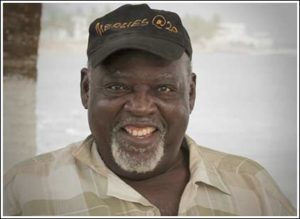
C.K. MANN is perhaps the most revered musician in Ghana. He rose to fame as the band leader of the guitar band the CAROUSEL 7, writing and recording a string of hits throughout the 1970s. Adept at all styles of guitar Highlife, he is best known for the Osode rhythm, earning him the name “The Osode King”.
A huge celebrity in his homeland, it is strange that he had to wait until his 70s before getting major international recognition. Once Hippo Records chose Okuan Tsentsen Awar to open their outrageous Ghana Funk compilation, it didn’t take long before his entire 1975 Funky Highlife album was reissued on the Mr. Bongo label in 2012.
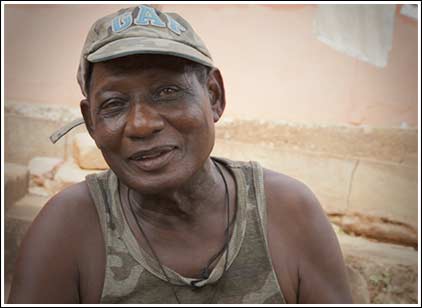
EBO TAYLOR has to be the biggest success story to emerge from the post-millennial surge of global interest in Highlife and Afrobeat. Since teaming up with Berlin’s AFROBEAT ACADEMY in 2008, he has been touring the world playing to packed audiences, and has released entirely new material on Strut Records including the acclaimed album Love and Death.
He started out back in the 50s playing traditional brass band Highlife in Ghana with the STARGAZERS and the BROADWAY DANCE BAND before moving to London where he fronted the BLACK STAR BAND (which also featured future Osibisa legends Sol Amarfio and Teddy Osei, as well as Eddie Quensah). Returning to Ghana, he released the eponymous 1977 album Ebo Taylor (reissued by Mr. Bongo in 2012) and over an illustrious career as a musician, arranger and producer, Ebo has collaborated with Fela Kuti, Pat Thomas and C.K. Mann.
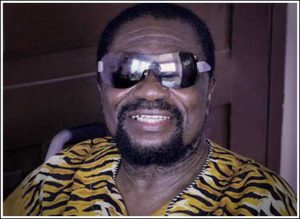
TEDDY OSEI is a legend of African popular music. Like Ebo Taylor, Teddy Osei was brought up on traditional Highlife, but left Ghana for London to extend his musical studies and to pursue a career as a performer. He played with Ebo in the Black Star Band, but it was when he formed OSIBISA together with his brother the late Mac Tontoh that things really took off. A collective of ex-pat West African and Caribbean musicians, their colourful brand of Afro-fusion “body music” crossed over in a big way with worldwide hits including Sunshine Day and Fire. With Teddy on vocals and saxophone and Mac on trumpet, Osibisa’s lineup has featured some of the finest Ghanaian musicians over more than four decades, recording a string of albums and touring all over the globe. They are without doubt Ghana’s most successful musical export.
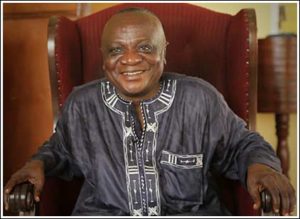
NANA AMPADU was a band leader at 19 years of age. THE AFRICAN BROTHERS group was formed in the concert party tradition. They started out with a residency at a hotel (which was very common for emerging bands), and would go on to phenomenal success, releasing well over 400 songs and touring in the UK and North America during the 70s. Nana Ampadu was at the vanguard when it came to blending Highlife with other influences. A guitarist of exceptional skill, he composed and recorded in many tempos, and in 1973 he created “Afro-hili”, a distinct concoction geared towards inciting dancefloor energy, and it’s as effective today as it was 40 years ago. Nana is recognised as one of the greatest Ghanaian songwriters of his generation, whose thoughtful lyrics told stories to inspire and provoke.
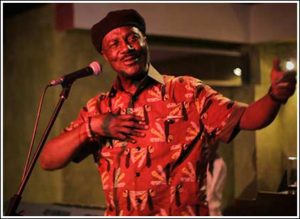
GYEDU-BLAY AMBOLLEY is another titan of the Ghanaian music scene who has been enjoying an unexpected second wind in recent years. His trademark Simigwa sound married traditional Highlife rhythms with his own vocal stylings reminiscent of James Brown and early American rap (which it pre-dates, hence Ambolley being credited with its invention…) His similarly titled 1975 album was reissued by Academy LPs / Voodoo Funk in 2012 after its staple track Simgwa-Do caused a sensation when released on the seminal Ghana Soundz compilation by Soundway Records. The Ghana Funk Project with Hippo Records took things to another level by way of a European tour, which led to more high profile performances in the US.
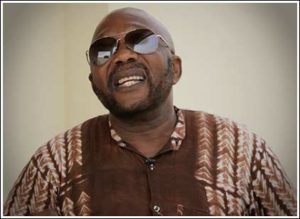
KOFI AYIVOR is Ghana’s master drummer numero uno, and his career in music is staggering. He played for THE TEMPOS (under E.T. MENSAH, the King of Highlife) from the age of 19, then with the RED SPOTS. In 1963 he went on tour with three other Ghanaians as part of the Silvio Lamberti Afro Italian Orkestra, performing in Italy and Iraq. He spent time in London and Sweden (where he taught music and rhythm at the National Ballet School and played with visiting luminaries like Duke Ellington, Miles Davis and Sarah Vaughan). And in 1973, he joined OSIBISA to play conga. Kofi ended up settling in Amsterdam where he has taught at the Tropical Museum and where he released his Rhythmology album through Otrabanda Records in 2005.
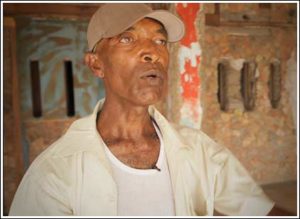
AMARTEY HEDZOLEH (aka Lash Laryea) played with THE PSYCHEDELIC ALIENS, whose name change (from “The Magic Aliens”) was down to the Hendrix effect – at the turn of the 70s West Africa was hungry for American music, and the Aliens were part of a trend responding to psychedelic rock.
All this came after Amartey founded the house band of the famous NAPOLEON CLUB . But by the time Hedzoleh Soundz hit fame with their 1973 album collaboration with Hugh Masekela, Amartey had left the band from whom he adpoted his surname. In 2014 Amartey put out Kukurantumi on ChopTime Music, an album of previously unreleased material.
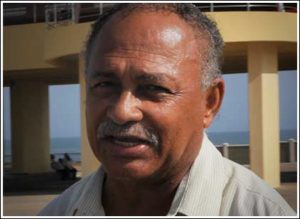
MALEK CRAYEM also played in the PSYCHEDELIC ALIENS, initially on drums and then on keyboards. The Aliens were the most prominent local band to play at the famous Soul to Soul concert in Accra in 1971, the same year they released Psycho African Beat (which was reissued by US label Academy LPs in 2010). Making the Black Stars documentary, no-one was more honest and insightful in interview than Malek Crayem. It was with great sadness that we learned of his death in 2015. The end credits of the film bear a dedication in his memory.
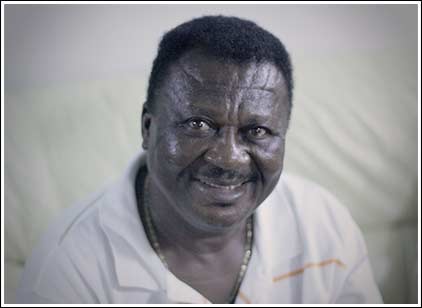
A.B. CRENTSIL is most famous for being the band leader of THE SWEET TALKS, the resident band of the Talk of the Town Hotel in Tema. He is acknowledged as one of the greatest Ghanaian singers of all time. The Sweet Talks have had two album reissues in the UK — Adam and Eve (Ashanti, 2000) and The Kusum Beat (Soundway, 2010).
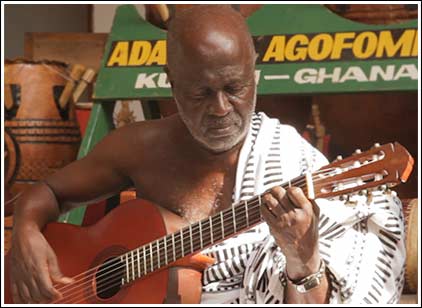
KOO NIMO is another of the elder statesmen of Ghanian music. His speciality is Palm Wine music, the earliest style of guitar Highlife born of the maritime trade. He sings folk songs in the native Twi language which call on traditional stories and parables.
After achieving national fame with his ADDADAM AFOFOMMA group, Koo Nimo spent time in the U.S. and the U.K, not only performing and teaching music but also through his second career as a chemist. Since returning home to Kumasi, he continues to nurture young musical talent. A former president of the Musicians’ Union, few have given as much to Ghanaian music. He is currently working on his memoirs. For more information visit his website at koonimo.org.
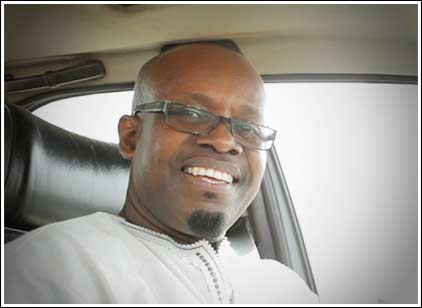
BESSA SIMONS got his big break playing keyboards for OSIBISA in the 80s. He went on to form his own group THE BESSA BAND who have recorded a number of hits in Ghana and have played all over the world. Having invested in his own studio, Bessa has helped develop a host of new talent in Ghana. He has served on the board of the Musicians’ Union, and as one of the country’s most respected producers and artists, Bessa features as a judge on Ghanaian singer contest shows like MTN Hitmaker and Bands Alive.
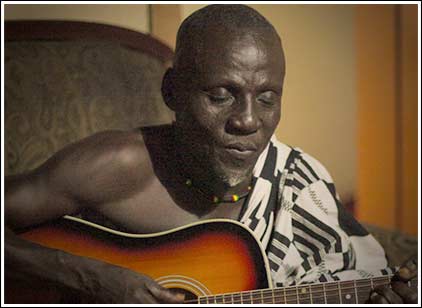
RALPH KARI-KARI learned his craft in the early 70s playing in THE NOBLE KINGS under the legendary K. GYASI . He is credited with inventing Sikyi Highlife by way of playing his bass guitar like a drum. Ralph also played with THE SWEET TALKS and other bands before moving to Germany in 1984 to team up with George Darko. Returning to Ghana, he continued to work as a session musician, one of many who struggled when the industry fell into decline in the late 80s. Ralph featured on the recent album Pat Thomas & Kwashibu Area Band on Strut Records.

VICTOR TIEKU played guitar for a number of bands before meeting FELA KUTI in Ghana, and hitting the big time. He went to Nigeria to join the EGYPT 80, staying at the notorious Kalakuta Republic. He ended up settling in the U.S. after touring there with Fela, and made the shift into production. He returned to Ghana to set up Kampsite Studios which has helped launch the careers of many Ghanaian artists in the modern era. Where the industry was lacking, Kampsite were the first to launch a publishing arm of their business. Victor divides his time between the U.S. and Ghana.
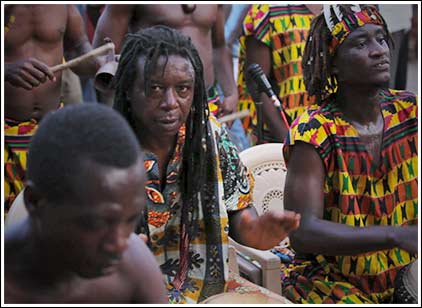
SAKRA AFRICAN ORCHESTRA are a contemporary band playing traditional African music. They were formed in the late 80s by drummer Nii Adjetey Adjei, spending time in Togo and Nigeria before returning to Ghana. They are all about the live experience, with multiple musicians and instruments, traditional dancing and colour. They also released an album in 2012 through ChopTime: Nofitelo (The Destroyer).
OTHER CONTRIBUTORS
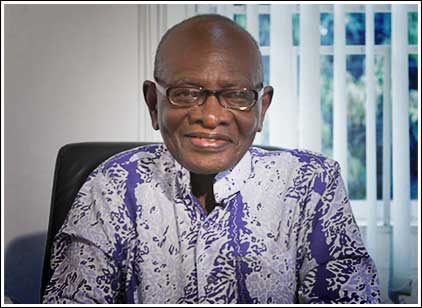
DICK ESSILFIE-BONDZIE founded the ESSIEBONS label in 1969 after running a successful record store in Accra which is still there to this day. Essiebons partnered with Polygram to set up the first record pressing plant in Accra, and Dick was responsible for bringing through and recording many of the the artists featured in the film. Indeed, the Essiebons archives were the main source of a good deal of the content included on the compilations Ghana Soundz, Ghana Funk and Afrobeat Airways.
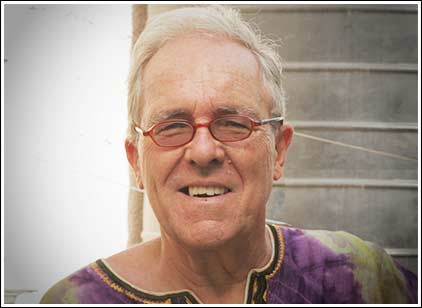
JOHN COLLINS is Professor of Music at the University of Ghana, and the country’s leading authority on musical history. He has had numerous papers and articles published as well as seven books, including West African Pop Roots. Having been resident there since 1969, John has been heavily involved in the Ghanaian music scene as a musician (playing with a host of the biggest stars), as a policy-maker with the Musicians’ Union, and as a researcher —he is the man behind the precious BAPMAF resource of archive material and information.
bapmaf.blogspot.co.uk/
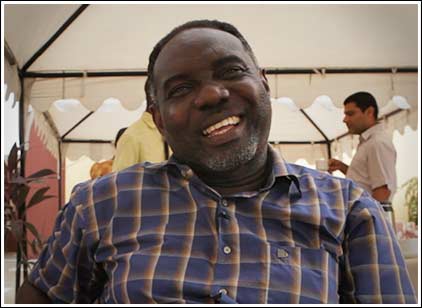
CARLOS SAKYI features in the film as a spokesperson for the interim Copyright Administration of Ghana, although he was and is a composer and musician in his own right who was prominent in the 80s before the near collapse of the music business in Ghana. The Musicians’ Union has faced a long struggle to correct the failings of the industry and its copyright administration body has taken on different guises over these turbulent years. Carlos (like others before and after him) has laboured as the head of that body, tackling piracy and educating musicians about their rights.
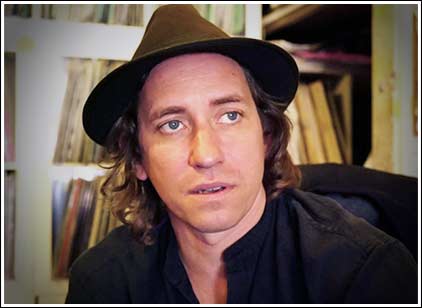
MILES CLERET founded SOUNDWAY RECORDS in London in 2002, coming back from Ghana with a suitcase of 45s. A lifelong record collector, as a DJ he originally inclined towards Black American music, but he was introduced to African music via Duncan Brooker (whose 2001 Afro-Rock compilation set a trend for DJs digging for records in West Africa). Along with Russ Dewsbury and Quinton Scott of Strut Records, and on the back of the deep funk scene, they all helped fuel the resurgence of Afrobeat and Highlife. Ghana Soundz was Soundway’s first release. Ghana Soundz vol.2 followed in 2004, and Soundway have reissued several compilations and albums by Ghanaian artists — although their eclectic catalogue extends far and away beyond West Africa.

MARTIN VAN AALST was first drawn to African music by chance, when he heard Kofi Ayivor doing a solo street drumming performance in Amsterdam’s Central Station. He enrolled in Kofi’s drumming school, and he made the first of many trips to Ghana in 1995. Working with HIPPO RECORDS, Martin was able to pursue his passion, seeking out rare Afrobeat and Afro-fusion recordings. Hippo followed an Atongo Zimba album release with their delectable Ghana Funk compilation in 2009.
Martin started his own label CHOPTIME MUSIC in 2012, releasing Nofitelo by Sakra African Orchestra and Kukurantumi by Amartey Hedzoleh in 2014.
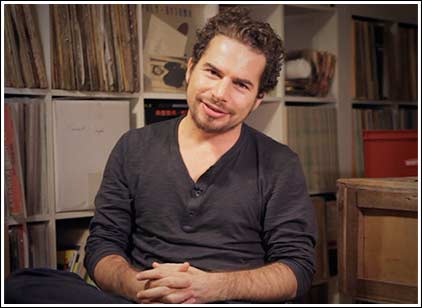
SAMY BEN REDJEB is a DJ and label owner who launched ANALOG AFRICA in Frankfurt in 2007 with the release of an LP by the Green Arrows which he had unearthed while visiting Zimbabwe. So began a love affair with Afro-Caribbean music which gave birth to numerous compilations and reissues of rare nuggets from Benin, Togo, Nigeria and Ghana, not to mention Analog Africa’s South American catalogue… His 2010 Afrobeat Airways compilation and its sequel include music from some of the artists who feature in the film. A tireless professional, you’d be hard pushed to find a truer champion of African music than Samy Ben Redjeb.
WITH ADDITIONAL MUSIC FROM…
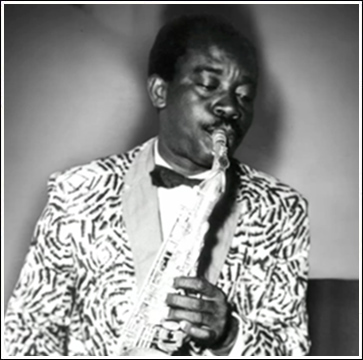
E.T. MENSAH joined THE TEMPOS at a time when the classical trend of dance band music was shifting with the influx of jazz and swing from America. The Tempos originally comprised mostly European soldiers stationed in Accra, but as the white members started to leave after the war, the Ghanaians superseded. Joe Kelley became band leader, then the percussionist Guy Warren (aka Kofi Ghanaba, who would go on to establish himself as one of the foremost jazz drummers in the US) before E.T. (on trumpet and sax) took over, as the Tempos started to incorporate indigenous African rhythms into the music they were playing. Other ballroom bands would do the same (THE RAMBLERS, THE BLACKBEATS, THE UHURU DANCE BAND and THE BROADWAY DANCE BAND among them), but it was the Tempos who were the most popular. They toured in Nigeria, Togo and Benin through the 50s, and their sound would become synonymous with the Independence movement. E.T. remained with the Tempos until retiring in the 70s, and the great man passed away in 1996. Some of his recordings have been reissued by Sterns Music/RetroAfric.
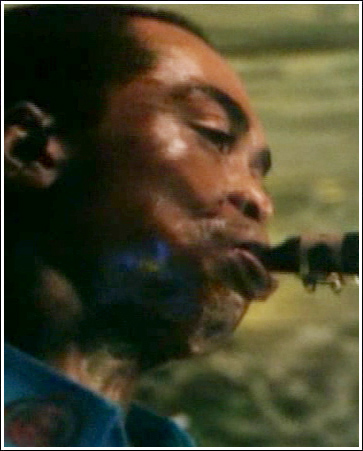
FELA KUTI is one of the most successful and perhaps THE most influential African recording artist of all time. Fela returned to Nigeria after studying in London in 1963 where he built a reputation with his band the KOOLA LOBITOS. They played a blend of Highlife and Jazz, but Fela didn’t coin the term “Afrobeat” until 1969 (he was in Ghana at the time, where soul music had taken off in a massive way — but Fela wanted to go in a different direction). After spending time in Los Angeles (where he was introduced to the Black Power movement), Fela came back to Nigeria, renamed his band the AFRICA 70, and launched his Afrobeat sound. His phenomenal success at home and abroad gave him a platform for his political views and his outspoken criticism of the Nigerian government made him a target for the authorities. The infamous 1977 raid on his Kalakuta Republic (the commune in Lagos Fela had declared to be an independent state) caused the death of his mother and left Fela severely injured. But he never compromised, and he continued to enjoy international success through the 1980s. Although he passed away in 1997, his fame has endured, not least through the huge success of the Broadway musical Fela! and the 2014 feature documentary Finding Fela from filmmaker Alex Gibney (Jigsaw Productions).

ROB ROY REINDORF was born in Ghana but grew up in Benin, where he studied piano and played with bands like Poly-Rhythmo and Black Santiago. Hugely influenced by American soul music, he returned to Ghana in the 1970s to team up with the Takoradi army band Mag-2 and they recorded Funky Rob Way (reissued by Analog Africa in 2011) and Make it Fast, Make it Slow (reissued by Soundway in 2012). When the Ghanaian music scene went into decline in 80s, Rob was among the exodus of musicians to Germany. He moved to Hamburg where his compatriots were developing “Burger Highlife”, but he has since returned to Ghana.
OTHER COLLABORATORS
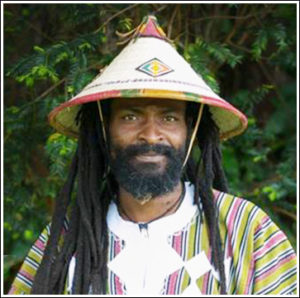
KODJOVI KUSH was instrumental in getting the Black Stars project off the ground. His Afrospot night club moved from Charlie Wright’s Jazz Lounge to Passing Clouds in London, where it was a fixture for for a burgeoning crowd of Afro-fusion enthusiasts from 2005-2013. Born in Togo, Kodjovi has travelled extensively as a professional musician, playing with the likes of Tony Allen, Seun Kuti, and Gregory Isaacs. He has an exhaustive knowledge of West African music, and he calls his own style “Agbajazz” — a mixture of Jazz, Highlife and Abgadja (the traditional music and dance of the Ewe tribe of Togo, Ghana, and Benin).Kodjovi also plays with the Soothsayers, whose brand of Afrobeat is infused with reggae, and his own Afrospot All Stars band features some of the finest veterans of Highlife including Adesose Wallace, Kofi Adu, and Alfred Kari Bannerman. They are currently completing work on their first album Love in Africa (soon to be released on ChopTime Music).
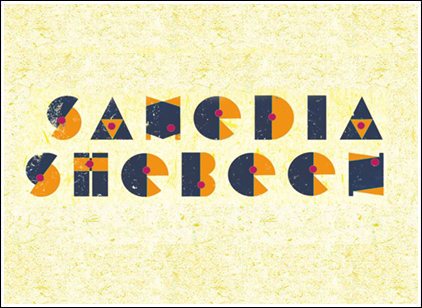
SAMEDIA SHEBEEN (facebook.com/samediashebeen) is a touring tropical party experience. Fronted by Chris Knight (DJ Astrojazz), this trio of DJs plays Afro-Caribbean and Latin American music to packed crowds at clubs and festivals at home and abroad — soon to be hitting the Nyege Nyege Festival in Uganda in September. Our home town neighbours, Samedia started out in 2010 (curiously, the same year as our film project), and they have steadily built a dedicated following. It is testimony to the growing international appetite for vintage African music, which is most evident in those pockets in Europe and America like London, Paris, New York, Amsterdam… and now Edinburgh.

STRUT RECORDS (www.strut-records.com) was established in London in 1999 to document and curate eclectic dance music, primarily funk, disco, early hip hop, and Afro-fusion. They have reissued a treasure trove of material from Africa and beyond, and their efforts to uncover those rare gems have been a major factor in the resurgent Western interest in Highlife and Afrobeat. But Strut are also committed to releasing new material by the original musicians, and have helped to reinvigorate the careers of legendary Ghanaian artists Ebo Taylor and Pat Thomas. We thank Strut and Quinton Scott for supporting our project.
The filmmakers would also like to thank the following record labels for their contributions. Like their featured counterparts, all are committed to the cause of spreading African music old and new to a growing audience.
STERNS MUSIC/RETROAFRIC London
ACADEMY LPS New York
OTRABANDA RECORDS Amsterdam
KNITTING FACTORY RECORDS London
MR. BONGO Brighton
Furthermore, we thank Bill Gorjance and Peermusic, whose original seed investment (with additional support from SAMRO) got this film project off the ground in the first place.
